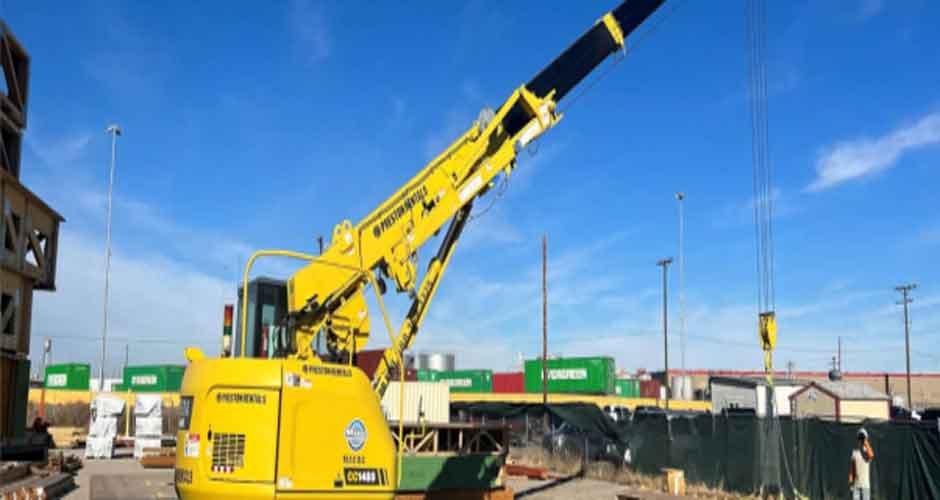Looking for an effective way to transfer heavy loads at your construction site?
There is no better option than cranes; renting one is your best choice. Renting a crane offers easy access to various cranes throughout your construction project.
However, deciphering crane rental costs could feel like reading an ancient language you know nothing about if you are not an expert in this field. There is nothing to worry about, as we are here to help.
Let’s delve deep into crane rental services and pricing and understand the myriad factors that can influence the cost of this machine. We will also explore some hidden costs you might incur while renting a crane and how to be mindful of them.
All You Need To Know About Crane Rental Prices
Various factors influence crane rental prices. So, the most accurate way of knowing the cost is to request a quote from reputed crane rental services. There are different types of cranes, and each comes with its own set of unique features and specifications.
Thus, it is very difficult to assess the exact price of renting a crane. However, that does not mean we can’t discuss the range of the rental prices that you might incur for your construction project.
Most small mobile cranes are rented out at $200 per day, and large-operated cranes cost approximately $1000 daily. However, if you wish to rent out large tower cranes, you might have to spend close to $15,000 monthly on rental fees.
The Basics of A Crane Rental Quote
If you are unfamiliar with the basics, Crane rental quotes might look like a maze to you. Here is a quick look at all the components present in a crane rental quote on a per day basis:
Base Rental Price: This covers the price of the crane, similar to getting a ticket for a train ride. This can be quoted on a daily, weekly, or monthly basis.
Mobility and Startup: This price covers the transportation and setup of the crane. While some companies include it in the original quote, others can use it as an additional cost.
Maintenance and Emergency Service: Regular maintenance during the rental period is generally covered in the rental quote. Some companies also include emergency services in case of breakdowns or issues during operation.
Factors That Influence Crane Rental Prices
Crane renting costs depend on various factors. Let’s take a look at them for a better understanding.
Crane Type: Depending on the type of crane you decide to rent, the cost can range from $100 to $1000 per day. Compared to small carry deck cranes, the large tower and operated cranes cost much more to rent.
Crane Lifting Capacity: The higher the crane’s lifting capacity, the higher the cost. Some of the largest mobile cranes can carry more than 1000 tons in one go. So, you can imagine the cost of renting that crane.
Rental Duration: The longer you rent a crane, the more cost you will incur. However, some renters do offer discounts on weekly and monthly rentals.
Current Crane Demand: When a lot of construction occurs, the high demand increases prices.
Consider these factors if you want to understand your rental quote more clearly. Once you get the prices in hand, deciding whether to rent a crane or buy one for the project is up to you.
Hidden Costs Of Renting A Crane
Renting a crane involves various factors beyond the apparent rental rate. Here are some hidden costs and factors you might encounter when renting a crane:
- Delivery and Pickup Fees:Transporting a crane to and from your project site can be costly, especially for longer distances. These fees may not be included in the initial quote.
- Operator Fees:If you need a crane with an operator, the cost will be significantly higher than renting a crane alone. The fees can vary based on the operator’s experience and qualifications.
- Fuel Costs:For cranes that require fuel, you may be responsible for the fuel used during the rental period.
- Permits and Licenses:Depending on your nature of your project or location, you might need to obtain special permits to use a crane. These costs can add up, primarily if you work in an area with strict regulations.
- Overtime Charges:If your project requires crane operation beyond standard working hours, you may incur overtime charges for the crane operator and possibly the rental period.
- Special Equipment or Attachments:If your project requires special attachments or equipment not typically included with the crane, these will incur additional rental fees.
Advantages of Renting A Crane
Cranes are invaluable when it comes to construction and maintenance projects. Here are three benefits of renting a crane over buying one.
- Cost Efficiency:Renting avoids the high upfront cost of purchasing a crane, making it more budget-friendly for short-term needs.
- No Maintenance or Repair Costs:When renting a crane you are not responsible for the maintenance or repair expenses, as crane rental services typically cover these.
- Flexibility:Renting helps you select the most suitable crane for each specific project without being limited to what is available in your inventory.
- Storage Savings:There is no need to find and pay for storage space for the crane when it is not in use.
- Up-to-date Technology:Renters can access the latest crane models and technology without continually investing in new equipment.
Final Words
Several factors influence the cost of renting a crane, and doing your homework beforehand is crucial to getting a good rate on the machines.
By understanding the elements that affect rental costs, you’re better positioned to make an informed choice when it’s time to rent.
Ultimately, crane rental offers a more practical and budget-friendly solution for handling heavy lifting tasks more efficiently and safely than buying.






